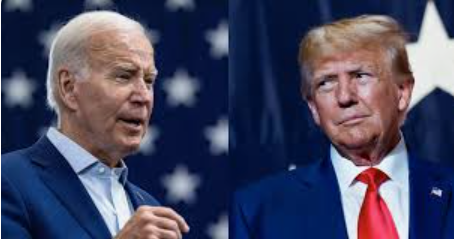


THE withdrawal of United States President, Joe Biden, from the presidential race and his endorsement of Vice-President Kamala Harris as the presumptive Democratic Party candidate marks a significant moment in American political history. This brave decision underscores a commendable act of putting the country’s interests above personal political ambitions and offers a crucial lesson to African leadership.
In a July 21 letter to the American public, Biden said: “It has been the greatest honour of my life to serve as your president. And while it has been my intention to seek re-election, I believe it is in the best interest of the party and of the country for me to stand down and to focus solely on fulfilling my duties as President for the remainder of my term.”
Biden was responding to calls by party leaders and concerned Democrats, who urged him to quit the race due to the existing political odds. The financial support from donors for the 81-year-old showed a lack of confidence in his candidacy. Biden took off with $95.9 million in campaign funds, but Kamala Harris was able to secure enough Democratic National Committee delegates and raise $126 million in three days.
His voluntary exit highlights the importance of selflessness and strategic foresight in governance. By endorsing Harris, Biden has entrusted the country to the next generation of leaders. He has also shown a willingness to prioritise continuity and unity within the party and the US.
African leaders can draw valuable lessons from Biden. Too often, Africa’s political arena is dominated by leaders who cling to power at the expense of their countries’ progress and stability. This usually overshadows the broader needs of their countries, leading to political turmoil, economic instability, and social unrest.
Several African leaders have perpetuated themselves through constitutional changes, electoral manipulation, and other means. Presidents Yoweri Museveni of Uganda, Paul Biya of Cameroon, Paul Kagame of Rwanda, and Mahamat Deby of Chad remain in power employing these means.
Unfortunately, Africa has a long history of such leaders. Among them were Robert Mugabe of Zimbabwe, Jose dos Santos of Angola, Omar al-Bashir of Sudan, Teodoro Nguema of Equatorial Guinea, and Idris Deby of Chad. Gnassingbé Eyadéma held power in Togo from 1967 until he died in 2005, and was succeeded by Faure, his son.
In Nigeria, former President Umaru Yar’Adua held on to power despite his ailment. The country was almost plunged into political instability when he died in May 2010. Former President Muhammadu Buhari frequented United Kingdom hospitals while at the helm despite the security and multidimensional poverty in the country.
These messianic and despotic dispositions of African leaders besmirch democracy and stagnate development. African leaders who are incapacitated should throw in the towel.
Biden has set a powerful precedent. It is a reminder that leadership is not merely about holding office but about the ability to serve the people. The true measure of a leader lies in their ability to step aside when necessary, allowing for the emergence of new ideas and fresh perspectives that can drive national development.
Biden has shown that stepping down can be an act of strength rather than weakness. Furthermore, Biden’s decision reflects a deep understanding of the changing political landscape and the need for adaptability. He understood that the political happenstances after the public debate signalled unfavourable outcomes.
So, African leaders should identify the demographic shifts and socioeconomic changes in their domains, prepare for succession, and nurture future leaders. They should make sure that their countries are free of personal agendas.
African leaders should recognise that the sustainability and prosperity of a country depend on leaders willing to place the country’s interests above their own, fostering a culture of succession and continuity that ensures lasting progress and stability.